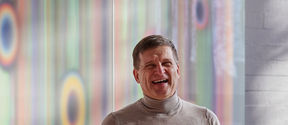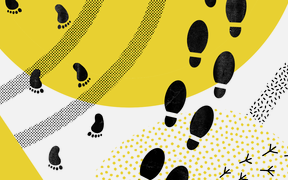What was your path to becoming the chair of the Aalto University board?
I'm an Aalto alum, so I grew up at the university, but that was ages ago. I graduated with a master’s degree in economics and business administration in 1982, and I worked for Nokia in various roles until 2007. After that, I moved to Sitra, where I was the president until 2020. Throughout my career, I’ve had a close relationship with Aalto University and in particular the School of Business, where I also did my doctoral defence in 1991 while I was working.
What has been most meaningful for you during these eight years?
The most significant topics have been internationalisation, multi-disciplinarity and tight collaboration with companies. Otaniemi is one of Europe’s leading innovation hubs today, and Aalto is one of the most international universities in Europe. During my studies, the university was all Finnish, and collaboration with companies was almost forbidden, even at the School of Business. The change has been enormous, and that’s why Aalto’s social impact has grown significantly.
Aalto also has an international board with a wide range of experience, which allows for quality dialogue and management sparring.
Cooperation between different disciplines isn’t always easy. What do you want to say about that?
It would indeed be easier for the different disciplines to live separately. After all, they almost naturally repel each other. For example, if you think about nuclear physics and art performances, they’re quite different creatures. But thanks to a shared campus and many joint courses, Aalto's different disciplines have found each other, and together we’ve found solutions to many of society's most wicked problems. We already know how to make clothes from wood, and new business models in the circular economy are enabling a much more sustainable future.
This shows how important joint projects on the same campus are, and the combination of skills at Aalto makes it possible to tackle the wicked problems society faces. It’s also been really great to see how value-driven our current students are, even at the School of Business. When I was there as a student, nobody was talking about the sustainability crisis!















